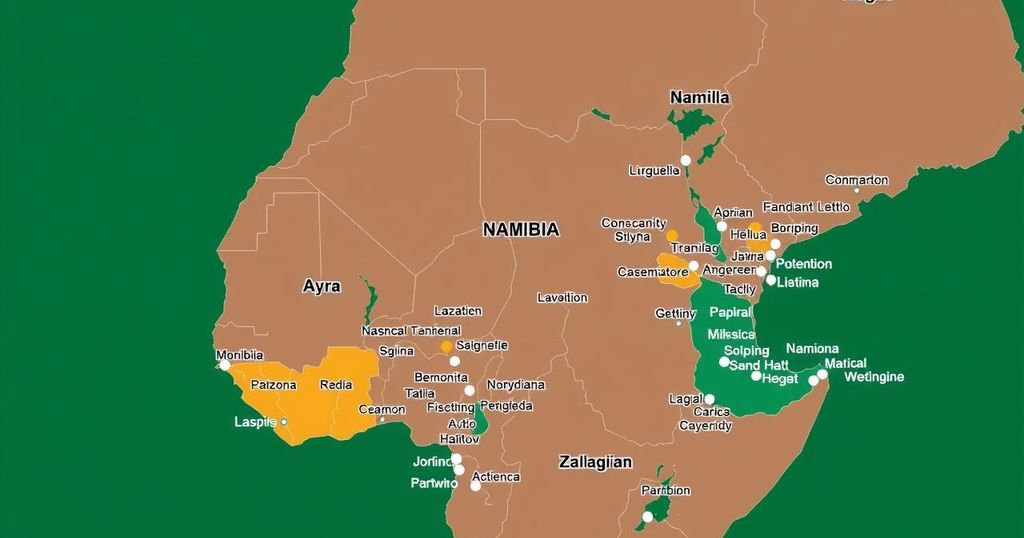World news
AFRICA, AFRICAN NATIONAL CONGRESS, BOTSWANA DEMOCRATIC PARTY, DEMOCRACY, FRELIMO, GOVERNANCE, GOVERNMENT, JOHANNESBURG, JOHN ELIGON, LIBERATION PARTY, MOZAMBIQUE, NAMIBIA, OPPOSITION, OSCAR VAN HEERDEN, PARLIAMENTARY SEATS, POLITICS, SOUTH AFRICA, SOUTH WEST AFRICA PEOPLE ’ S ORGANIZATION, TIM, TIMO SHIHEPO, WINDHOEK
Daniel O'Connor
0 Comments
Namibia’s Election: A Critical Test for SWAPO Amidst Youth Discontent
Namibia’s elections are poised to test the ruling SWAPO party as it faces significant challenges including unemployment, corruption, and youth disenchantment. With historical loyalties eroding and young voters emerging, SWAPO is attempting to engage this demographic amidst a broader regional context of declining support for liberation parties. The outcome of the election could mark a critical juncture in Namibia’s political trajectory.
On Wednesday, Namibian citizens are preparing to cast their ballots in a pivotal election that could reshape the political landscape of the nation. The election marks a critical moment for the South West Africa People’s Organization (SWAPO), a former liberation party that has been in power since 1990 but faces increasing dissatisfaction due to high unemployment, government corruption, a housing crisis, and poor social conditions. Recent results in neighboring countries have shown declining support for similar parties, urging SWAPO to adopt new strategies to attract younger voters. With over 40 percent of registered voters under the age of 35, the party has enlisted popular South African musicians to perform at rallies while attempting to engage this demographic through initiatives such as including younger candidates in their parliamentary slate.
Despite the enthusiasm from the youth demographic, experts caution that young voters historically have lower turnout rates compared to older generations. Economic hardships have reached critical levels, with significant housing shortages and a staggering unemployment rate impacting citizens’ lives, prompting a shift away from the historical reverence towards liberation movements. Political analysts suggest that SWAPO may still retain a significant advantage due to a potentially fragmented opposition and its established support base in rural areas, which are crucial to its electoral strategy.
The political context in southern Africa is characterized by a decline in support for traditional liberation parties as voters increasingly prioritize contemporary issues over historical accomplishments. SWAPO, which led Namibia to independence, has held power since 1990 but is now confronted with voter discontent amidst economic and social challenges. The youth population, representing a substantial portion of the electorate, seeks accountability and changes to policy that reflect their immediate needs, contrasting with an aging constituency that remains loyal due to historical allegiance. The dynamics surrounding engaging younger voters represent a significant shifting landscape for SWAPO as it gears up for this election, making the outcome uncertain yet crucial.
The upcoming election in Namibia stands as a possible turning point for both the political future of SWAPO and the evolution of voters’ expectations in southern Africa. Key factors influencing the election include the fragmentation of opposition votes, historical loyalty among older constituents, and the need for meaningful economic reform that resonates with the youth. The outcome may either solidify SWAPO’s grip on power or usher in a new political era, underscoring the importance of this contest in the lives of its citizens.
Original Source: www.nytimes.com




Post Comment